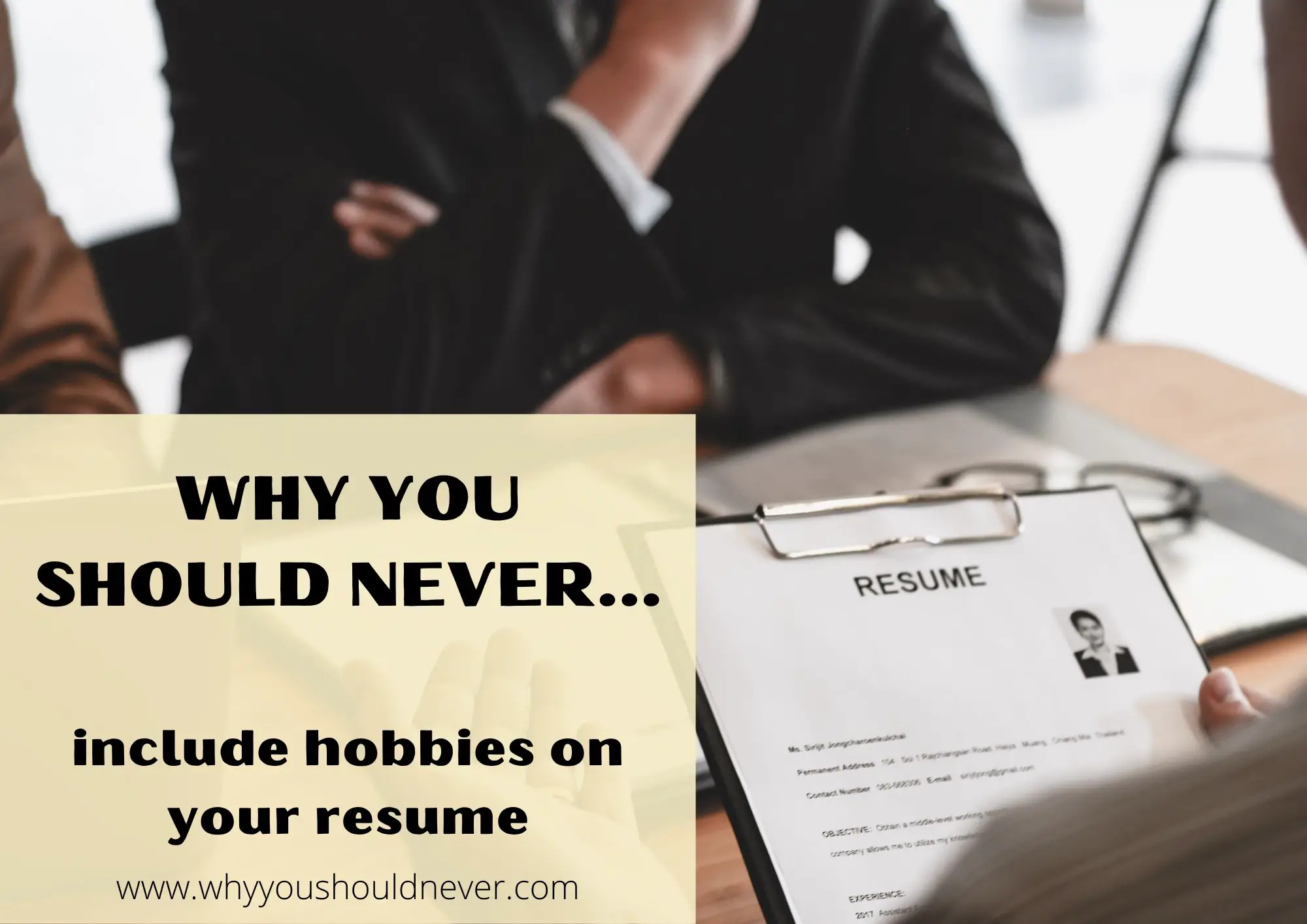![]()
Why You Should Never Include Hobbies On Your Resume
You’re probably familiar with the scenario. You’ve got your education, experience, and skills all listed out, and then you find yourself staring at this other section labeled “Hobbies.”
Seems relatively harmless, right? A chance to show you’re well-rounded, a real person beyond the corporate veneer. You might think, “Hey, my origami skills might impress someone out there.”
But here’s the twist in the tale: including hobbies on your resume might not be the power move you think it is. Wanna know why? Well, continue reading.
8 reasons why you shouldn’t include hobbies on your CV/resume
1. It could be seen as filler
Resumes are meant to be concise, information-packed documents that represent your professional life. When a hiring manager sees hobbies, it could be interpreted as you trying to bulk up a thin resume. It might indicate a lack of relevant professional experiences or skills, even if that’s not the case.
2. Irrelevance is a risk
Unless your hobbies directly relate to the job you’re applying for, they’re probably not relevant. Sure, if you’re applying for a graphic design role and you do digital art in your spare time, that’s useful. But your love for cooking might not be so impressive to an accounting firm. Sticking to strictly professional and job-related skills and experiences is the safer bet.
3. Negative biases can creep in
This one’s a little more insidious, but it’s something to consider. Recruiters are humans, after all, with their own biases and prejudices. They might judge your hobbies without intending to or even realizing it.
That peaceful zen garden hobby could be seen as too “woo-woo.” Or maybe your passion for competitive chess is interpreted as too intense. The bottom line is, hobbies say a lot about a person, and people will judge you on them.
4. Time management concerns
Another potential downside is that hiring managers might think your hobbies take up too much of your time, raising questions about your ability to maintain a healthy work-life balance.
If you’re a semi-professional athlete in your spare time, for example, they might worry whether you’ll be able to commit to your work responsibilities fully.
5. It leaves less room for the essentials
Simply put, every hobby you list is space that could be used to further showcase your skills, qualifications, and experiences. The “one-page resume” rule is still pretty popular, so real estate is valuable. Make sure you’re using it to its fullest potential.
6. Missed opportunity for mystery
A bit more tongue-in-cheek, but worth considering. Leaving out hobbies means there’s more about you to discover in an interview. It could make you seem more interesting and give you more to talk about when you meet face-to-face.
7. Unfamiliarity or cultural differences can lead to misinterpretations
Hobbies that are commonplace or well-regarded in your culture may not be familiar or carry the same connotations in another. This can lead to confusion or misinterpretation.
For instance, if you list “cricket” as a hobby, a recruiter unfamiliar with the sport, especially if they are from a region where it’s not commonly played, might not understand the dedication and team strategy it involves.
This could result in missed opportunities for drawing beneficial parallels between your leisure activities and your professional attributes.
8. Lack of professional focus
Recruiters usually spend just a few seconds scanning each resume, and in that time, you need to capture their interest with strong, job-relevant content.
Including hobbies could distract from your key professional achievements. You want to maximize the impact of each line on your resume, and hobbies, unless directly job-related, often don’t contribute to that goal.
Wrapping things up
Unless your hobby is directly relevant to the job or you’re using it to showcase transferable skills, it might be best left off your resume.
Remember, this document is your ticket to an interview. It’s not your life story, but a highlights reel of your professional journey. Keep it concise, keep it relevant, and let your skills do the talking.
With all that said, though, if you really think your talent for singing operas in Italian might just snag you that corporate role… who am I to stop you? You do you!
